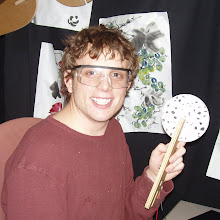Here's a situation. You have a light switch that works about 1/3 the time. The other times there's bad wiring and it just doesn't happen.
In a traditional study, you would flip on the switch and record whether the light comes on. And do this 100 times. You would probably get r=.3 a moderate correlation. Suggesting there is likely a relationship.
If this was a real scenario, would you really do this as a human being? NO. You would flip the switch on, and see the light immediately came on. You would do this a few more times. See that sometimes it doesn't. And you would be able to say, this lightbulb is tied to this light.
The reason we can do this is because of time. As soon as you flip the switch, the light turns on (sometimes). What are the chances of the light randomly coming on at the exact same moment. Very unlikely. But there is still a chance. Ok do it 7 more times. Problem solved.
In a recent paper I read (Myrtek, 2004) they found heart rate and reported emotions don't correlate. But I think they do, SOMETIMES. When a person get's excited I see his heart rate increase right at the moment. That is all the evidence I need to prove his statistics wrong.
I think I will have to leave academia on their incistence to do all their research with their obvious eyes closed.




No comments:
Post a Comment